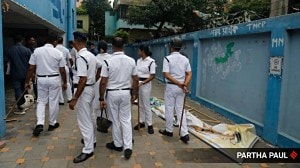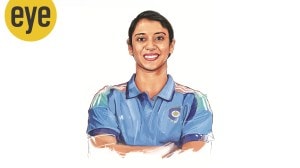Muslim law board agrees triple talaq a social ill, but says no legal prescription
The All India Muslim Personal Board today made it clear there was no question of a Muslim woman being given the right to divorce. Nor could ...

The All India Muslim Personal Board today made it clear there was no question of a Muslim woman being given the right to divorce. Nor could there be any curb on the practice of triple talaq.
The board executive committee, meeting in Kanpur, decided to continue with the family laws adhered to so far while recognising the fact that triple talaq was a social ill which could not be corrected legally.
Speaking to reporters, Board president Maulana Syed Rabey Al-Hasani Nadvi said: ‘‘Our laws are based on divine inspiration and triple talaq comes from the same inspiration, that is, Shariat. We have no powers to amend or abolish it. So the triple talaq is irrevocable.’’
‘‘We did not take up the issue of right to divorce to a Muslim woman as five of the seven female members had objected to its inclusion in the nikahanama at our Bangalore meeting in 2000.’’
The Board members, who are all in their sixties (barring spokesperson Qasim Rasool Ilyas), held a closed-door meeting for nearly 10 hours. Eight of them — this did not include the lone woman member Dr Naseem Iqtidar Ali — sat to address the social reform issues pertaining to Muslim women.
The Board issued a curt statement on social reforms: ‘‘The executive meeting decided to launch a intensive campaign, appealing and persuading the community to follow the rules of Shariat in matters of marriage and termination of marriage by talaq, rights and obligation of husband and wife and inheritence.’’
‘‘The Board will take stock of the situation at the general body meeting which will be held in Calicut in Kerala in December 2004 and will decide about the targets and topics of reformation.’’
Nadvi, on his part, said: ‘‘You cannot codify human behaviour for every social ill. We had abolished untouchability by making a proper law over 50 years ago. Have we been able to abolish untouchability?’’.
He said the Board recognised the fact that triple talaq is bad but the Muslim society can find a solution to it only through social reforms. ‘‘Legal reform is not an answer to every social ill,’’ he maintained.
The Board also advocated that problem of talaq could effectively be handled, if both the parties — husband and wife — approach Darul Quza. Nadvi said that in Bihar, Orissa and Jharkhand, the Darul Quza solved 18,000 talaq cases and in most, Muslim women benefitted.
Nadvi made it clear that the draft nikahanama was under consideration, but it would neither abolish the triple talaq nor grant Muslim women the right to divorce.
‘‘A Muslim woman has many other ways to part with her husband. If she proves atrocities of her husband before Darul Quza, she can easily get rid of him,’’ Nadvi said. Meanwhile, on the Babri Masjid issue, the Board has decided to wait for the court verdict. ‘‘The Supreme Court’s verdict will be binding on the Board and all the Muslims,’’ Nadvi said. On CBI cases, in which Advani was given a clean chit, the Board president said they may give their representation to the Union government.
The Board also decided that the UP government be approached to amend Zamindari Abolition Act to give rights of inheritence to daughters and mothers.



- 01
- 02
- 03
- 04
- 05




























